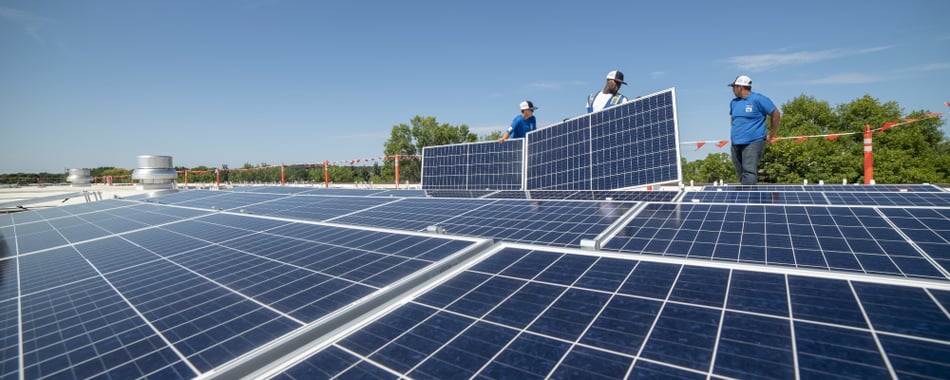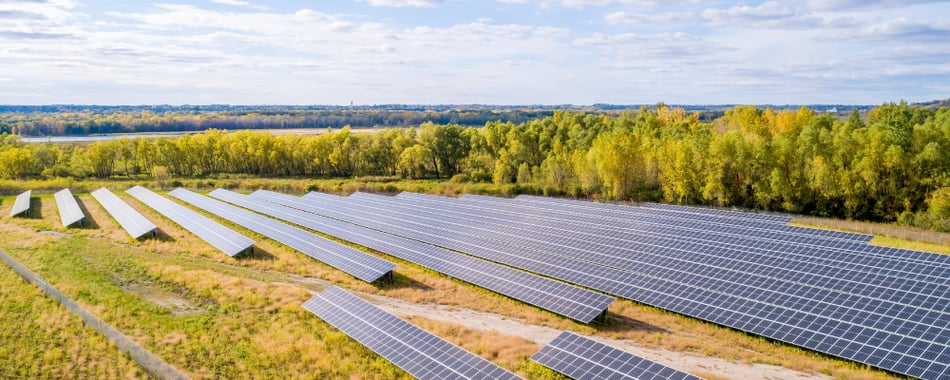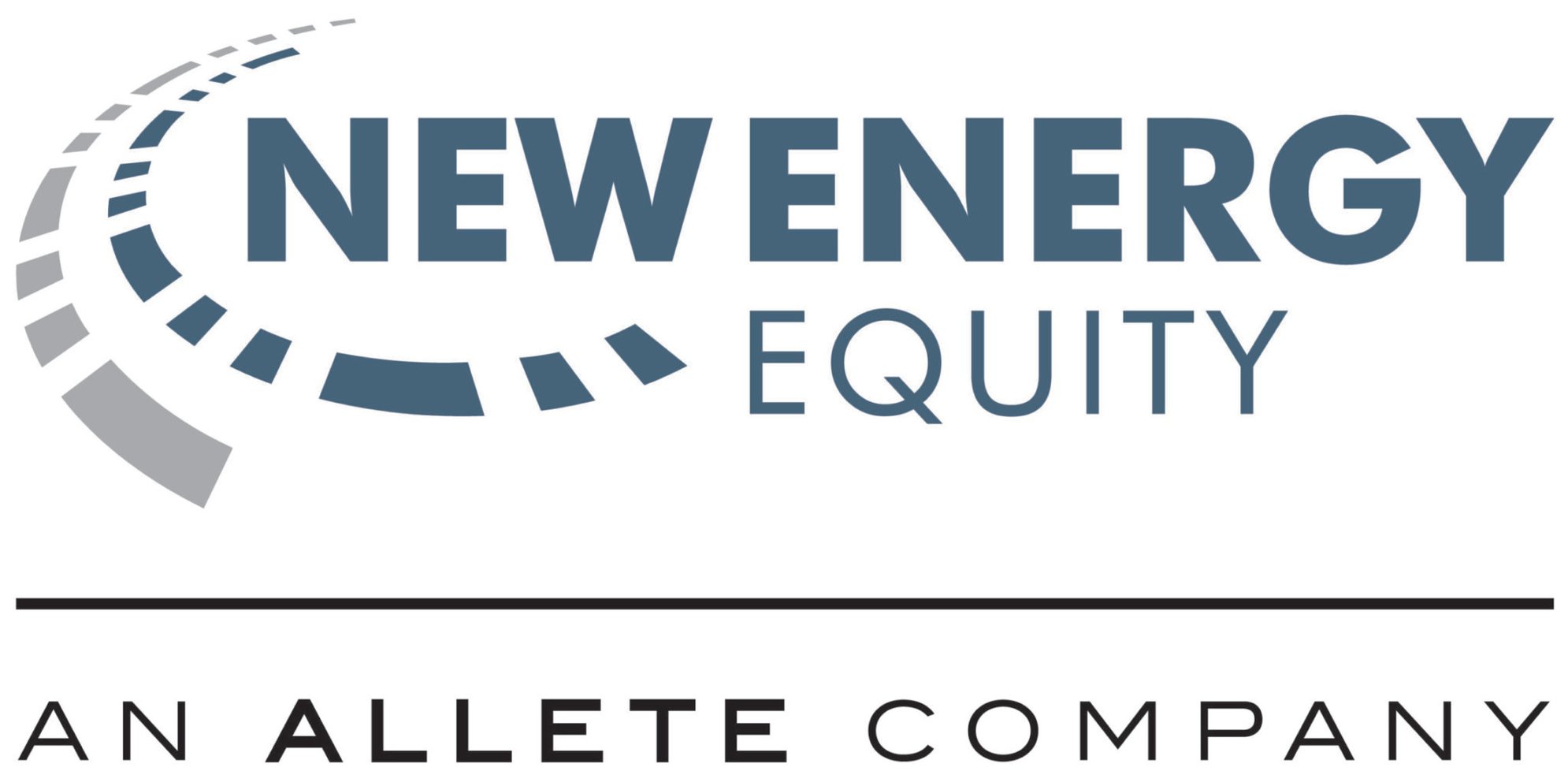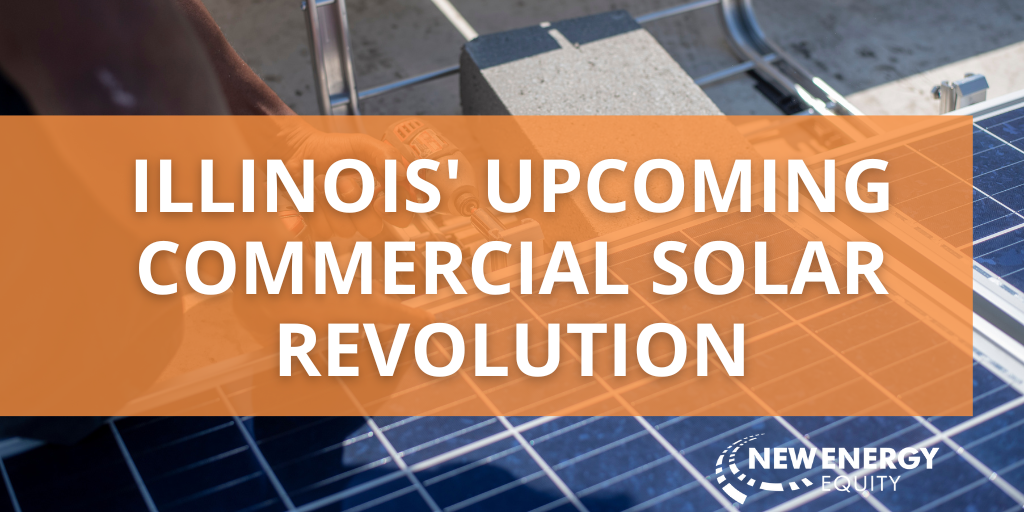New Energy Insights
- Home /
- New Energy Insights /
- Illinois' Upcoming Commercial Solar Revolution
The Climate and Equitable Jobs Act (CEJA) was passed into law on Sep 15th as a landmark bill that prioritizes renewable energy investment in Illinois through the 2020’s, on a pathway to 100% carbon-free electricity by 2050. There are many implications and opportunities for organizations looking for predictable and lucrative returns while addressing environmental, social and governance (ESG) goals. This is the most opportune time for Illinois facility operators to adopt clean energy strategies.
Why CEJA and Why Now?
In order to meet carbon reduction goals, nuclear energy is a “must have” technology, at least as it stands today. Exelon, parent company of ComEd- the state’s largest utility and primary service provider to the Chicago-land area, was on the verge of shutting down two of its nuclear facilities in Dresden and Byron due to a lack of sufficient funding. This bill provides up to $700MM in funding for nuclear facilities, some of which may be matched by federal dollars.Recent extreme weather events were also on the minds of state officials. At the bill signing Governor Pritzker remarked on historic disasters over the past two and half years including polar vortexes, flooding, record lake levels, heat waves, all of which resulted in emergency declarations in more than a third of Illinois counties. In 2016 the state passed the Future Energy Jobs Act which allocated funding for residents, businesses, municipalities and other organizations to adopt clean energy. The primary problem was a lack of ongoing funding, which created a boom and bust for the solar industry, putting thousands of jobs in limbo.As part of the Climate & Equitable Jobs Act, this funding is set on a more sustainable pathway, with funding allocations in place through 2030. Other aspects of the bill include a focus on marginalized communities and entrepreneurs of color, as well as jobs training and placement for fossil fuel workers as those facilities retire across the state. There will be significant investment into utility-scale clean energy projects, but how does the bill affect Illinois organizations and how can they get in on the action?
Solar Means Business (Opportunities)
The primary incentive program for solar and renewable projects is the Adjustable Block Program (ABP), which is curated by the Illinois Power Agency. With the new bill the ABP is fully funded for the next decade, with allocations specifically for organizations and public entities.
On-site Solar

Onsite solar projects, located on roofs, on the ground, or on carports, have an allocation of at least 100 megawatts DC per year. This is the best ROI opportunity for organizations.
- Incentive compensation is based on selling Renewable Energy Credits (or RECs) to the utility via the ABP program.
- No project can be larger then 2 megawatts AC (DC sizing can vary but is generally estimated at 1.4MWdc to 1MWac)
- The pricing of these RECs is attractive, often valued as much as the utility rate itself. REC contracts have a term of 15-years, but accelerated funding payments are fully paid in only 7 years. There are clawback provisions should the system underperform over that 15-year period.
- Each year incentive funding is segmented into blocks, which decline in value slightly as allocations fill up.
- Prevailing wage required for all projects except single family residential, multi-family residential, and houses of worship under 100kW.
- There is a Smart Inverter rebate from the utilities which results in ~10-15% of the project cost being paid upfront as a cash rebate. This rebate is recalculated once market penetration reaches a certain threshold, as determined by the utilities and Illinois Power Agency
- Most organizations will realize a 4-5 year simple payback, for an asset that operates for 25 years or more.
- There are many financing options including Power Purchase Agreements and Property Assessed Clean Energy (PACE), which allows organizations to pay for energy improvements via their property taxes (see our PACE blog here).
Community Solar

Community Solar allows residents and organizations to participate in offsite solar projects, in instances where they either can’t or don’t want panels installed on their homes or buildings.
- At least 50% of a community solar project must be subscribed by residential accounts, leaving up to 50% eligible for commercial entities.
- Organizations with significant roof space or open land can lease space for community solar projects. This can be an excellent community engagement tool. For building owners, revenues may be lower compared to traditional leasing but these areas are typically underutilized.
- The first 2 years of annual capacity (250MWac) will open simultaneously within the first 6 months of the bill passing.
- 70% of capacity will be designated for Group B (ComEd area)
- 30% of capacity is available to Group A (Ameren area)
- Projects will be selected from the existing community solar project waitlist, which means developers will have up to 250,000,000 kWh of subscription capacity for commercial entities in 2022 statewide.
- New community solar applications allow for project sizes up to 5MWac per site.
- Specific funding and preferences will be given to projects that address under-served communities via the state’s “Solar for All” program.
Other Programs
- Electric vehicle incentives will be available both for the vehicle purchasing and charging infrastructure.
- Energy efficiency and innovation programs will be funded via the utilities.
- The Solar for All program will support new BIPOC-led businesses with grant funding.
The Time is Now
New Energy Equity is proud to have advocated for this bill over the last several years alongside many other stakeholders. We help our clients analyze, prioritize and adopt solar strategies across their portfolio of properties. The popularity of these programs will only increase so it is critical to start the evaluation process in order to benefit from upcoming rounds of the Adjustable Block Program.
Stay up-to-date with New Energy Equity by joining our mailing list.

